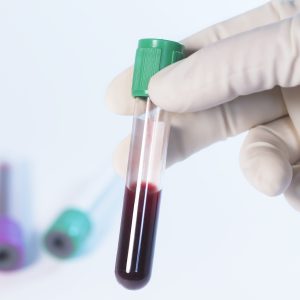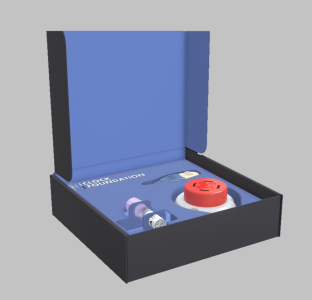Biological Age Tests Used by Top Longevity Researchers
Understand Your Aging. Contribute to Longevity Research.

Open Longevity Groups - Where Longevity Research Meets Community
Join one of our open longevity groups at MyAgingTests.com for comprehensive testing, analysis and insights, and to enable groups to band together to rapidly test the most promising anti-aging treatments.
Powered by the Clock Foundation.
Why Should I Track My Biological Aging?
Measure Aging

Age is the strongest risk factor for mortality and disease, including disease, dementia, and COVID-19.
- Biological age measurements (like GrimAge) are built to represent your actual age risk and have been shown to be more accurate than chronological age alone.
- Fortunately, your biological age is modifiable, meaning you can change it.
Evaluate Changes

Tracking can help you see changes over time and decide whether those changes are having an anti-aging impact.
- Understand the impact diet and lifestyles changes like exercise have on your rate of aging.
- Monitor if advanced anti-aging treatments are having on your rate of aging.
Citizen Science

We believe research into improving healthy aging takes a community of participatory citizen scientists.
- Participate in one of several community-led trials focused on different anti-aging protocols.
- Share data and insights from your journey into living longer, heathier lives.
How We Measure Aging
Biological Aging Tests Developed & Used by Top Longevity Researchers
PhenoAge

- The PhenoAge Test gives you a biological age score. It is based on levels of 9 clinical biomarkers circulating in blood, which were found to strongly correlate with onset of age-related diseases and mortality.
- It is a biomarker of aging developed in 2018 by a team including Dr. Morgan Levine, Dr. Luigi Ferrucci, and Dr. Steve Horvath.
- Along with your biological age score, this test includes many well-established clinical biomarkers used by physicians and in clinical trials and can be useful for understanding your health status.
- Requires a simple blood test that can be performed at a local lab anywhere across the U.S. or currently in select locations in the U.K.
Epigenetic Age

- Our epigenetic age tests predict your biological age (what some call “True Age” or “Real Age”) based on DNA methylation.
- Specifically, we use PhenoAge and GrimAge, which have been found to strongly correlate with biological age and are a predictor of morbidity and mortality.
- Developed in the Horvath lab at UCLA using historical biobank data from large population studies and validated in large independent studies across a wide variety of human cell types and tissues.
- Beyond biological age, our epigenetic testing also predicts your immune system status and enables monitoring of immunosenescence (immune system aging).
- Test requires a blood sample from a home kit collection and takes as little as 5-10 minutes, which is then returned for processing by express mail.
Recent Media Coverage & Interviews
Our Plans & Biological Age Tests
Measure Your Aging. Contribute to Longevity Research.
 USA
USA
 Europe
Europe
 UK
UK
 USA
USA
PhenoAge Test
_________
-
Lab Blood Test
-
Biological Age Report
-
1-on-1 Longevity Consultation
Advanced 3-for-1 Biomarker Monthly Plan
_________
-
PhenoAge Tests (4x per year)
-
GrimAge Epigenetic Tests (2x per year)
-
Monthly Wearables Aging Biomarker Report
-
Longitudinal Tracking Reports
-
Eligibility for Longevity Groups
(Epigenetic)
GrimAge Test
_________
-
At-Home Blood Test
-
Epigenetic DNA Methylation Analysis
-
Advanced Healthy Aging Report
-
1-on-1 Longevity Consultation
 Europe
Europe
(Epigenetic)
GrimAge Test
_________
-
At-Home Blood Test
-
Epigenetic DNA Methylation Analysis
-
Advanced Healthy Aging Report with unique longevity intervention recommendations
-
1-on-1 Longevity Consultation
PhenoAge
_________
-
Lab Blood Test
-
Biological Age Report
-
1-on-1 Longevity Consultation
 UK
UK
(Epigenetic)
GrimAge Test
_________
-
At-Home Blood Test
-
Epigenetic DNA Methylation Analysis
-
Advanced Healthy Aging Report with unique longevity intervention recommendations
-
1-on-1 Report Review & Portal Training
PhenoAge
_________
-
Lab Blood Test
-
Biological Age Report
-
1-on-1 Longevity Consultation
(Epigenetic)
GrimAge Test
_________
-
At-Home Blood Test
-
Epigenetic DNA Methylation Analysis
-
Advanced Healthy Aging Report with unique longevity intervention recommendations
-
1-on-1 Longevity Consultation
PhenoAge
_________
-
Lab Blood Test
-
Biological Age Report
-
1-on-1 Longevity Consultation
We are currently unable to directly offer our biological aging tests outside of USA, Canada, Europe or UK. We do not ship GrimAge tests directly to Australia or New Zealand. Please contact [email protected] to request availability and testing options in other locations.
~
Frequently Asked Questions
Biological age refers to your age on a biological level compared to your chronological age or how many birthdays have passed for you.
Biological age tests look at changes in your biology that are indicative of biological aging. In our case, our biological age test uses what is called an epigenetic clock to calculate your biological age.
Fortunately, your biological age is modifiable, meaning you can change it. Tracking your biological age can help you see changes over time and understand the impact diet, lifestyles changes, and anti-aging treatments are having on your rate of aging.
Both tests determine biological age and associated risks.
PhenoAge is calculated using levels of 9 clinical biomarkers circulating in blood, which were found to strongly correlate with onset of age-related diseases and mortality.
GrimAge Test is an epigenetic test and predicts your biological age based on DNA methylation, basically changes in your DNA over time. GrimAge is the “gold standard” in longevity research offers and offers personalized aging drivers, risk factors and tailored recommendations for longevity.
PhenoAge Test involves a blood (plasma) lab test and takes just a few days to get your results, while a GrimAge involves an at-home blood collection kit, which you ship back to our lab for processing, DNA extracting and sequencing, and report processing. GrimAge takes a few weeks to complete and get your report.
After ordering a single test or a package, you’ll receive a welcome email detailing how our program works and the steps ahead.
For U.S. participants, this initial email will include:
- A link to an online survey to register your test kit and complete a brief intake questionnaire;
- A form that enables you to obtain your first blood draw, along with instructions on how to schedule an appointment; and
- Instructions on how to collect and return your at-home blood collection kit.
For a PhenoAge Test, you will receive your initial test report including your results as soon as each of the above steps have been completed (within approximately 1 week). Once you receive your initial results, you’ll also be able to book a 1-on-1 consultation with our team to discuss.
Results of our advanced Epigenetic Test are usually available within 4-6 weeks.
Our subscription and longevity biomarker plans combine the two biological aging tests used by longevity researchers with wearable monitoring, providing cutting-edge longevity intervention tracking and aging monitoring.
Our wearables monitoring plan integrates with Oura, FitBit, Google, Garmin and an assortment of health trackers. Data is sync regularly and you’ll receive a personal month report proving HRV Age as well as sleep, activity and other aging metric.
You’ll receive access to our longevity tracking portal to review and monitor your health data and reports as well as tools to track and manage your longevity interventions and actions.
Cancellations are accepted at anytime, but in order to obtain test results from a submitted sample, it requires having an active subscription for at least 2 months to cover costs.
We currently only ship to the United States, UK and Europe and serviced by labs in Los Angeles, USA, and Manchester, UK.
Please contact us if you are located elsewhere and are still interested in purchasing a test or participating in an anti-aging trial.
A genetic or DNA test looks at what your DNA contains whereas an epigenetic age test measures various epigenetic changes on our DNA itself. Unlike DNA, your epigenetics are modifiable.
Many cells in the body have an “epigenetic clock” that keeps track of how quickly they are aging or, more accurately, how much damage has been done since they were created.
Our test provides your biological age as well as various key drivers of your aging.
Our tests are based on epigenetic data. Unfortunately we are not able to compute GrimAge based from genetic data provided by Ancestry or 23&Me. We require epigenetic data and specifically IDAT files provided by epigenetic test providers. There are many service labs around the world who provide this type of service using testing provided by Illumina methylation arrays (such as the EPIC methylation beadchip)
Longevity Groups are participatory research initiatives facilitated by the Clock Foundation. These groups allow individuals to collectively explore the effects of various anti-aging treatments, supplements, and protocols. Participants track their biological age and other biomarkers to help generate reliable data on the effectiveness of different interventions.
Learn more and signup here.
Epigenetics is the study of how genes are turned off and on during an animal’s lifetime, including humans.
A Greek word meaning “above genetics”, epigenetics is the study of changes in gene function that occur without detectable changes to DNA sequence. What this means is that your gene expression (like what proteins your cells produce) changes but your gene sequences themselves do not change.
Epigenetics most often involves changes that affect gene activity and expression. These epigenetic changes can occur due to normal biological development but they can also result from external or environmental factors like food choices, stress levels or even injury.
DNA methylation is a process where methyl groups are added to DNA to influence gene expression, and which are critical for normal human development, defining cell identity, as well as for rejuvenation and reprogramming. Highly accurate estimators of chronological age have been developed are known as epigenetic aging clocks, which can predict chronological age through development and across the lifespan (Horvath 2013, Horvath & Raj 2018).
Increasingly these clocks are also being used as a measure of biological age as certain measures – most notably GrimAge (Lu 2019, Li 2020), which is able to predict future morbidity and mortality risk. GrimAge also performs well for predicting functional decline and onset of major age-related diseases, including heart disease, cancer onset, multi-modal measures of brain health, kidney disease, fatty liver, respiratory function, and more (Lu 2019, Hillary 2018, Hillary 2020, McCrory 2020). These peer reviewed and independent studies have also shown that it performs reliably across large diverse populations.
Many researchers conclude today that overall epigenetic clocks now represent the most robust measure of biological age (Li 2020, Jylhava et al 2017, Justice & Kritchevsky 2020).
WARNING: TESTS INTENDED FOR RESEARCH PURPOSES ONLY
These statements have not been evaluated by the Food and Drug Administration. These products are not intended to screen, diagnose, treat, cure, or prevent any disease or condition or assess risk of any disease or condition. Unless advised by your healthcare professional, biological age should not be used to determine or alter any age-related health or medical treatments based on your chronological age.
Let’s Stay In Touch
© 2025 Clock Foundation.
